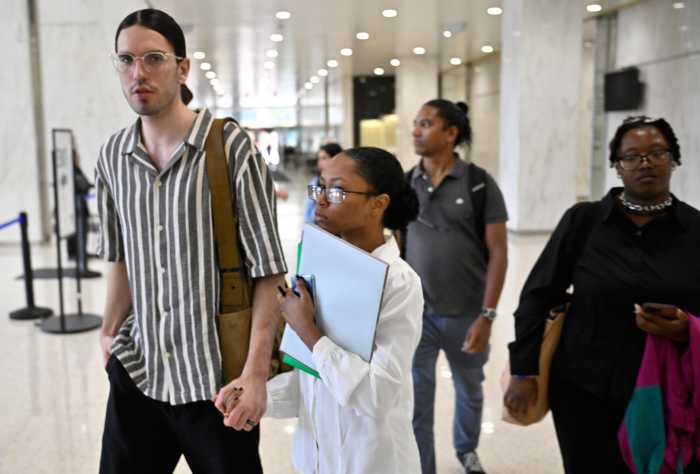Brooklyn’s growing reputation as one of the preeminent biotech centers of the country took another step forward recently with a $3 million federal grant to fund an addition to SUNY Downstate’s Advanced Biotechnology Incubator.
The money comes as one of the companies already renting space in the incubator building at 760 Parkside Avenue may have discovered a breakthrough that will lead to a HIV/AIDS vaccine.
That company, the International AIDS Vaccine Initiative (IAVI), which is funded through the Bill Gates Foundation, was one of the early tenants when the incubator was built five years ago.
IAVI, which also has offices around the world, announced last week that they, along with affiliated researchers, have discovered two powerful new antibodies to HIV that reveal what may be an Achilles heel on the virus.
The findings are the result of a worldwide effort launched by IAVI in 2006 to find new antibodies that neutralize a wide variety of strains of HIV circulating in the world. The study was published in the journal Science.
“The findings are an exciting advance because now we’ve got a new, potentially better target on HIV to focus our efforts for vaccine design,” said Wayne Koff, senior vice president of research and development at IAVI. “And having identified this one, we’re set up to find more.”
The $3 million is coming through the federal Economic Development Administration (EDA) and will pay for a three-story, 24,000-square-foot addition to the incubator facility near Kings County Hospital and the SUNY Downstate Medical Facility.
It will also include outfitting the building with modular wet labs, office space, conference rooms, exterior light enhancements and a parking area.
The project is expected to create 90 jobs and generate $20 million in private investment, said Dr. Eva Cramer, a professor of anatomy and cell biology, SUNY Downstate’s Vice President for Biotechnology and Scientific Affairs.
“We currently have eight companies at the incubator that lease space,” she said, adding that when the biotech companies outgrow the relatively small incubator space, they often move to the Brooklyn Army Terminal in Sunset Park.
IAVI has already moved part of their operation there, but they also maintain about 1,000 square feet at the incubator, she said.
Cramer said the Advanced Biotechnology Incubator has in five years brought between 100 and 150 mainly research jobs, and has fostered a solid foundation for Brooklyn to become a biotech research center in the future.
“We’ve raised over $25 million for the incubator and the state has given $42 million for the Brooklyn Army Terminal, and the city has given us $12.5 million for the Brooklyn Army Terminal,” said Cramer. “So this is an opportunity for little companies to really grow and get very big in Brooklyn. It’s very affordable here, plus we have a Workforce Development Grant so at the same time there is a labor force to complement it.”
U.S. Commerce Secretary Gary Locke said the Obama administration remains committed to creating jobs, encouraging innovation and improving our nation’s economic competitiveness.
“This EDA grant will create new higher-skilled, higher-wage jobs and boost private investment in the New York region by expanding a facility that is providing affordable space for start-up biotechnology firms,” Locke said.





















